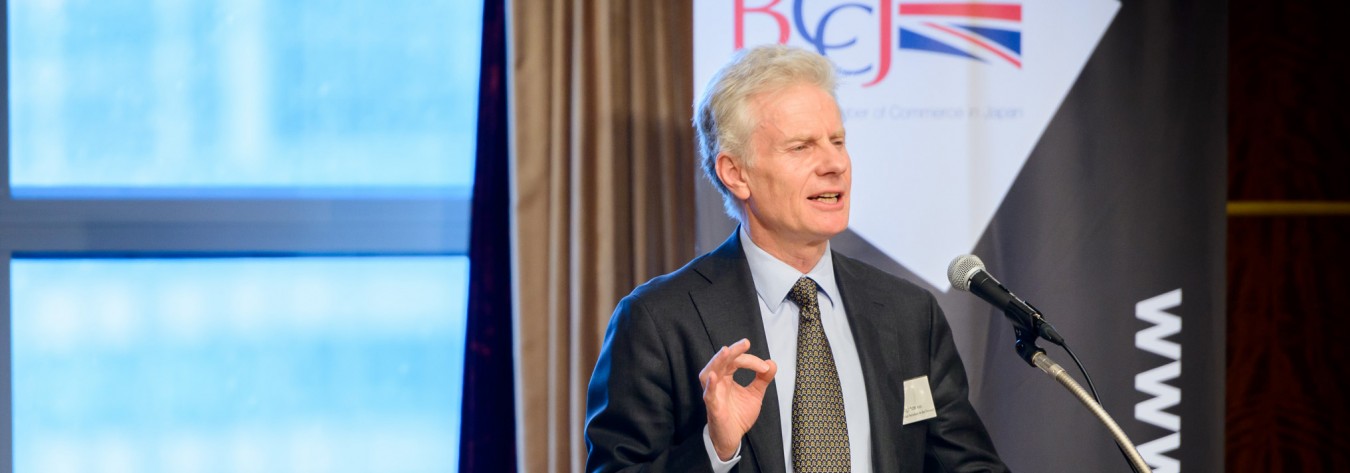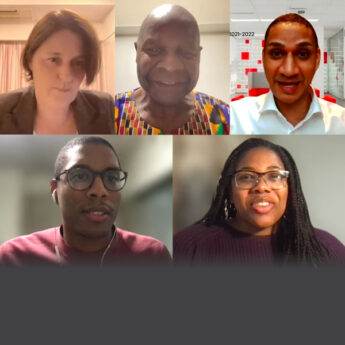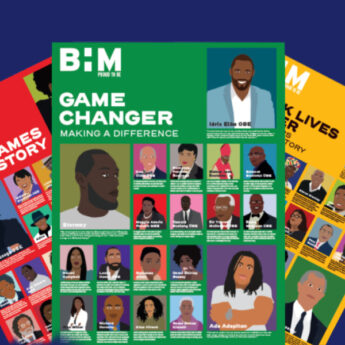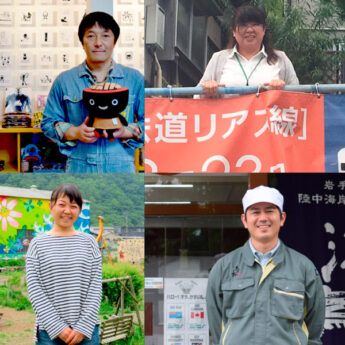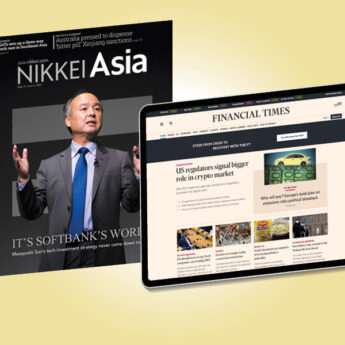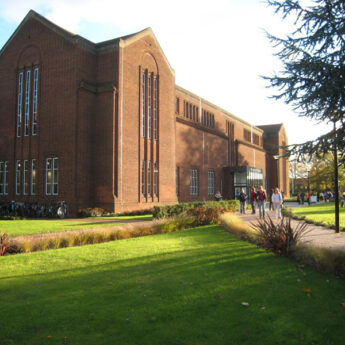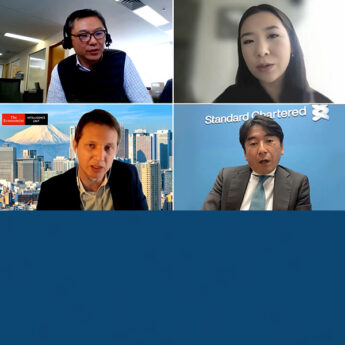—Lord Deighton
- Key meetings held with Tokyo 2020 president and his team
- Need relationship-building, fact-finding and optimism
- Knowhow is shared; traits of Games are personal to host city
Legacy, diversity and leadership: these are the buzzwords of Lord Deighton KBE, former chief executive of the London Organising Committee of the Olympic and Paralympic Games (LOCOG).
Sharing the lessons learned in delivering the London 2012 Games, he gave an inspiring presentation at the British Chamber of Commerce in Japan’s breakfast event on 17 February at the Shangri-La Hotel, Tokyo.
Lord Deighton was then joined by British Ambassador to Japan Tim Hitchens CMG LVO on a courtesy visit to his Japanese counterpart, Yoshiro Mori, at the Tokyo Metropolitan Government offices.
Mori, president of the Tokyo Organising Committee of the Olympic and Paralympic Games (TOCOG), engaged them in an exchange of views behind closed doors (page 43). Thereafter, the pair also met in private with other members of TOCOG.
Lord Deighton’s day began with him reminiscing on a childhood memory of the Tokyo Olympiad in 1964—one of the reasons that led him to accept his former role at LOCOG.
“For me, Tokyo and the Olympics are quite special because 1964 is the first Olympic Games that I can remember. I was a small boy—an eight-year-old—but I can remember very clearly the Ethiopian runner Abebe Bikila winning the marathon”, he said. “The memories you create as part of the Games are an absolutely critical part of it”.
This issue of legacy, he said, is a key consideration in the planning process. In addition, in delivering London 2012, he was mindful of the need for quality leadership as an important ingredient for success.
“One of the most difficult things”, he said, “was to get my leadership team right, because you’ve got to have someone who can take the organisation from being a small start-up to what will become the biggest organisation in the country”.
Being a successful leader, Lord Deighton continued, requires an ability to build relationships with key stakeholders, including sponsors and the wider community. What is more, a keen understanding of operational challenges and requirements is needed.
To this end, Lord Deighton met and interviewed as many of the previous chief executives of the Games’ organising committees as he could. Rather disconcertingly, he discovered that more people had held the role than the number of Olympic and Paralympic Games, suggesting the job is far from easy.
What he learnt from these leaders, however, is that the run-up to staging the Games is a journey. He summed it up in seven stages: initial exhilaration; the settling in of reality; disillusionment; doubt; the hunt for scapegoats; success; and glory for all involved.
The seven stages are ultimately summed up in the “how” and “why” of successful project management. The how has three variables: time (fixed in the case of the Games), money (variable, but clear and precise budgeting is), and functionality or delivery (even greater variability).
One aspect of delivery in the case of London 2012, Lord Deighton continued, was to ensure the Games accurately reflected society by showing diversity. To achieve this, he sought to recruit underrepresented groups, including women, minorities and those with disabilities.
Considering the “why” of the Games, he said the reasoning behind London 2012 was to inspire young people to take up sport—a goal reflected in LOCOG’s initial promise when bidding for the Games.
Lord Deighton and his team were also determined to realise an attitudinal shift in society through the mega tournament.
This was achieved in several ways, such as inspiring national pride via the Olympic Torch relay. This initiative drew enthusiastic local support while showcasing some of the best of the UK’s rural and urban areas.
In closing, Lord Deighton drew on his experiences to share sage advice relevant for those involved in Tokyo 2020.
“What I learned about leadership was to be ever the optimist and to show people what they can do no matter how tough the challenges and how impossible it might seem”.
A robust question and answer session followed his presentation, covering topics such as security surrounding the Games, comparisons between the use of large and small corporate sponsors, and the effect of social media on broadcasting.
When asked if he had any regrets, Lord Deighton said he wished he had followed his instincts earlier in the decision-making process.
He added that, while every Games is particular, and tailored, to the host city, there are some areas where knowhow can be transferred, making him confident that Tokyo can take away any necessary lessons from LOCOG’s experience and put on a great show.
“I know that Tokyo 2020—the 32nd Olympiad—is going to be absolutely fantastic”, he concluded.
